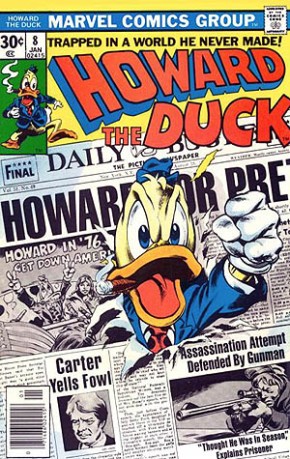Does your grant have to be perfect to be funded? @Drugmonkeyblog posted a thoughtful bunch of words that addresses this question, and a little back-and-forth on twitter was summarized by The Mistress of the Animals @pottytheron here. I’m motivated to kill more electrons on the issue because honestly, DM and PT and I really I think agree on the important point, and I want the message to be clear: submit your damn grant this cycle.
Silver? Gold? What the hell do these things mean? @Pottytheron is spot on, there is no objective measure, only the inherently arbitrary opinions of study section. We agree on the point that any grant submitted has a good chance of rejection for whatever reason. And the *critical* part of academic success is to keep submitting. Like shots on goal, you have to keep trying to win.
When I said, “silver proposals do not get fundable scores,” our apparent disagreement, I suggest, was the perception that I was referring to how “great” the science is. Is this grant your “best” science? I agree with DM, that question is not the most important one. I super agree it’s not worth a grant cycle trying to improve the scientific concept of your grant. We agree completely I think that too much time spent with tunnel vision on how brilliant your science is has diminishing returns. What I mean by a “flawless” grant one that is holistic, that is, that treats each and every section (the budget, your biosketch, lay abstract, etc) with equal diligence.
A senior huge-ass deal PI told me once when I was a post-doc that grant proposals should be “round like a ball of wax,” and for years I could not figure out what the hell he meant. I think his words though are key to understanding the paradox here– yes, I agree that a grant does not have to be perfect, and most importantly you should not spend an inordinate amount of time trying to make it so. But at the same time, the grant must be large error-free.
Here is the rest of a post I had started earlier on the topic of writing a “perfect grant.” What I point out are a few fatal flaws that have tanked grants of mine and those I’ve reviewed.
———
Wait a minute, Smarty Pants…how can I, a not-quite-perfect person manage to put together a perfect grant proposal? Damned if I know, to be honest. But there were a few pitfalls I wanted to broadcast to perhaps prevent one of you from falling into similar holes.
Review the work of your admin. At least two grants in my stack last week were painfully trashed because of the same mistake on their face page: the mechanism was incorrectly filled out. Specifically, two grant that were otherwise perfectly fine independent investigator grants had “career development” mechanism listed on their face page, clearly in error. The grants staff thought hard about whether it would be acceptable to correct this error for the PI.
Focus your grant on your strongest suit. On the twitter, I made the comment that it was not a good idea to put in a grant on a topic that is not your strongest suit. I was recently on study section where PIs got tepid scores, in part perhaps because their grant focus was different from their most recently published papers. Odesseyblog in fact has an outstanding post describing his success in just such a subject matter switch. Indeed has a super post on his mid-career research change. Reading his post I think only underscores my point that such transitions should be undertaken with care. OB says that he already had an extremely successful research enterprise in one area so sure. If you already have stable grant funding for one project, and if you results are pouring in to suggest that you are mining a good data vein, then sure. By all means, branch out. (This is what the NIH intended the R21 mechanism to be for, in my understanding.) The struggle I witnessed reviewing grants were PIs that were *not* yet firmly successful in one subject area. They came across as diffuse, unfocused. If your main lab effort is *not* fully funded, your proposals, I suggest, should hit different facets of a singular focus, and not be shots into different areas completely, where you have no track record, hoping to get lucky.
Don’t bring coals to Newcastle. No matter how brilliant you think your ideas are, be very very cautious about trying to “improve” a well-known area. Specifically, I am referring in my experience to well-studied genes and molecular pathways. As a junior investigator, I felt I had some great data on a well-studied gene, and felt that adding a “new angle” on an old pathway would be greeted with enthusiasm. I was wrong. This is a dicey one because new angles on old pathways *can* be huge breakthroughs, clearly. My mistake was that as a small lab investigator, I thought that my moderate amount of interesting new data would be enough to pique the interest of those in the field. In a well-established field/gene/pathway, novel aspects typically need to be accompanied by overwhelmingly strong data, preferably using a novel technology. I overestimated the impact a few interesting experiments could have on jaded reviewers, and I’ve seen others do the same. The bar for getting interest is much lower if you have a previously unknown, or under studied pathway.
Take a leap forward. Success in an application can in the big scheme be viewed as a careful balance between innovation and feasibility. It must be clear to reviewers that you are able to accomplish what you set out to do. Publications are key. Preliminary data, invaluable. Yes, paradoxically, if your entire grant is completely feasible, then it risks being labeled “incremental,” a death sentence. The best grants have a leap forward in there somewhere. Reviewers want to see that if the grant is funded, the work will bring a quantum leap forward…not just tie up some lose ends.
Yes, most of these points are arguable. These guidelines are successfully broken by senior scientists on a regular basis. Careful though… like old F. Scott said, “Let me tell you about the very rich. They are different from you and me.” The points above are directed at junior level investigators, and are delivered with the understanding that I am really only describing my personal experiences. As “advice” take it with a grain of salt and a healthy dose of skepticism. Nullius in verba, after all.


